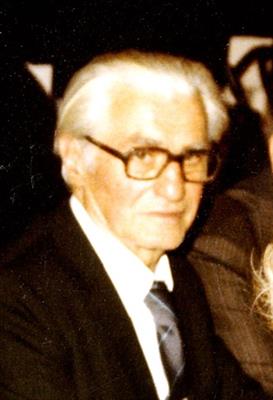Dr. Gottfried Lerch

Personalia
Born:
Died:
Profession:
Persecution:
Imprisonment 04.11.1938 - 08.05.1939,
Released in 1939,
Resistance fighter (undiscovered)
Memberships
Curriculum Vitae
After attending school in Trieste and Bleiburg, Gottfried Lerch attended grammar school in Graz and Linz, where he graduated in 1925. In the winter semester of 1925/26, he began studying law and political science in Vienna and also took history, German studies, Latin and physical education. In the same year, he joined the student fraternity Austria Wien. From 1929, he also worked as head prefect at the boarding school of the Catholic School Association in Vienna XVIII. In 1932, he obtained a teaching qualification for Latin and gymnastics and entered the teaching profession. He first taught at the Bundesgymnasium in Vienna XVIII, then at the Bundesrealschule in Linz. He is also involved in the founding of a youth organization of the Christian Social Party (OSS) in Upper Austria, where he is also a member of the provincial leadership. In 1937, he was awarded his doctorate and then transferred to the Bundesrealgymnasium in Stockerau
On 15 March 1938, Gottfried Lutz founded his own school. On 15 March 1938, Gottfried Lerch founded the resistance movement "Austro-European Resistance" [AER], which emerged from the Catholic Academic Gymnastics Association and remained active throughout the war (resistance group: Geheimgruppe Lerch). In a letter dated May 16, 1938, the regional school board informed him that he was temporarily suspended "due to the change in political circumstances and in accordance with § 154 of the Teachers' Service Regulations as of April 28, 1938", "as your continued employment would endanger the reputation of the school and the essential interests of the service." The Disciplinary Board confirmed the suspension shortly afterwards, reduced his salary to two thirds and ordered a disciplinary investigation.
On November 4, 1938, Gottfried Lerch was arrested by the Gestapo. However, his transfer to the Dachau concentration camp is prevented by Ottokar Faber, an illegal immigrant. While still in police custody, he was finally dismissed from the civil service on March 20, 1939 without any further entitlement to benefits. His imprisonment is revoked on May 8, 1939 for lack of evidence. He was initially unemployed, but in October 1939 he was taken on as an emergency employee in the Vienna Chief Finance Office, but was dismissed there in April 1940 as politically unacceptable. He was then drafted into military service and served as a translator on Kesselring's staff in Italy.
Places
Residence:
Citations
Fritz, Herbert/Krause, Peter (2013): Farbe tragen, Farbe bekennen 1938–45. Katholisch Korporierte in Widerstand und Verfolgung. (ÖVfStg, 2013) S. 410.
